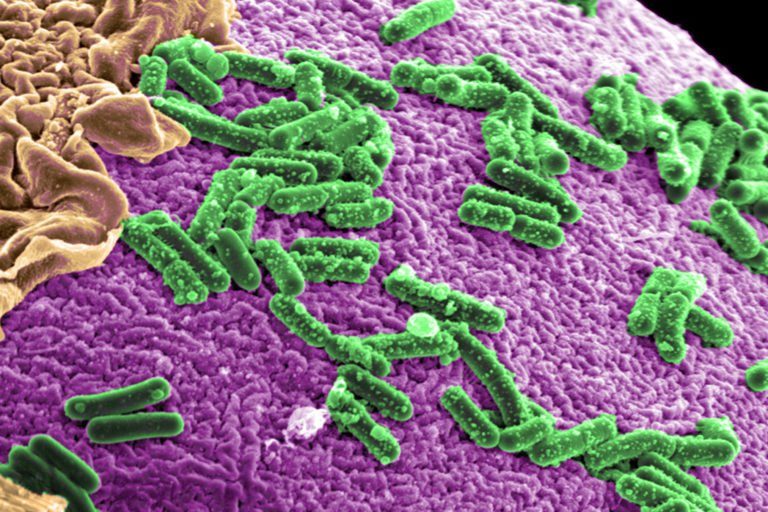Inseco, a South African startup that uses insects to convert waste food and other organic byproducts into proteins, oils, and fertilizer, has raised $5.3 million in funding.
The seed round — which the Cape Town-based startup claims is the largest raised in South Africa to date — was led by Futuregrowth Asset Management, with participation from E4E Africa, Oak Drive Ventures, and a selection of private investors.
Inseco plans to utilize the funding to increase production capacity.
“We found that the demand that we’ve encountered for the products exceeds our capacity to supply the minimum order quantity of some of the larger customers that we’re dealing with,” co-founder and CEO Simon Hazell told AFN.
The seed capital will also be used to bring new team members on board and fund R&D activities.
From wine to waste
The global insect protein market shows a lot of growth potential, with Barclays projecting it could be worth $8 billion by 2030 with applications in animal and fish feed as well as food for human consumption. In Africa, Rwanda’s Magofarm is another startup producing animal feed ingredients from insects. Ecodudu and Insectipro, both based in Kenya, are likewise upcycling organic waste using insects.
“Now more than ever, we’re seeing the importance of sustainability, and the responsibility that we have to be a more resource-efficient society for future generations,” Hazell said.
“We believe that insects will play an important role in this transition, becoming a widely available source of sustainable protein, and an important form of nutrition to help meet the food demands of the future.”
Inseco was founded in 2017 on the premise of alleviating food waste. After Hazell spent time with a wine-producer friend, he noted the substantial wastage of byproducts from the winemaking process. His attention was then drawn to organic waste in other sectors.
“I identified that it’s not just the wine industry; it’s quite commonplace in a number of industries for large volumes of organics to be discharged on a regular basis, and either sent to landfill or put to limited use [in] other types of solutions,” he said.
Hazell thought black soldier fly larvae could provide a solution, by consuming food waste to become food themselves. He put a team together and began to test insect-based products to understand potential use cases; eventually settling on livestock and aquaculture feed in the first instance.
Initially, they had to bootstrap the company, Hazell recalled. “It’s a relatively complex business [in which] to demonstrate use-case. It requires resources upfront to really prove out the business case.”
Insect protein benefits
The biological process of insect egg production is managed at Inseco’s plants, and the growing and processing of the larvae is done in units that can be deployed on-site wherever organic waste is available. The startup claims this decentralized model increases production volumes in addition to enabling it and its partners to unlock cost and scaling efficiencies.
“We’ve seen that the transportation of raw materials has an economic and environmental impact on production. By locating the insect growing at the source of the raw material, we’re able to improve the sustainability and commercial viability of insect production,” Hazell said.
At the other end of the production process, Inseco operates a 10,000 square meter, tech-enabled facility that produces more than 100 metric tons of defatted insect meal and oil per month. This goes into EntoMeal and EntoOil, Inseco’s flagship products, which it claims are nutritious, cost-effective, and environmentally sustainable alternatives to conventional animal feed ingredients such as fishmeal and fish oil. It also produces a fertilizer from the excrement and shed exoskeletons of the larvae.
Most of Inseco’s customers are in the aquaculture, pet food, and poultry industries. The company claims its products offers them both cost and functional benefits.
“We found that by displacing a certain percentage of fishmeal in the diet with insect protein, you’re able to increase growth rates and decrease feed conversion rates. [That] means that you basically have to feed the livestock less feed in total over its lifecycle, which ultimately leads to producing more product for lower cost,” Hazell said.
Giving insect protein and insect oil to young livestock was also found to decrease youth mortality rates, he added.
Now, Inseco is exploring international expansion with a number of potential commercial partners in different countries.
“In comparison to traditional protein sources, insect protein has an inherently lower environmental impact, as the process directly reduces food waste, involves minimal greenhouse gas emissions, limited water usage, and makes zero use of arable lands,” Amrish Narrandes, head of unlisted equity at Futuregrowth, said in a statement.
“In addition to the strong [ESG] case, insect protein has a superior nutritional content, which results in higher feed conversion rates compared to traditional protein sources.”












